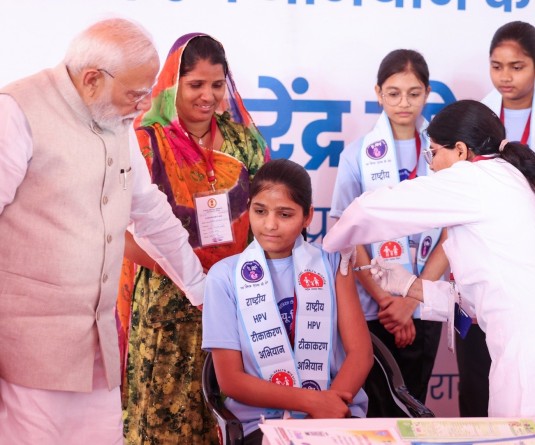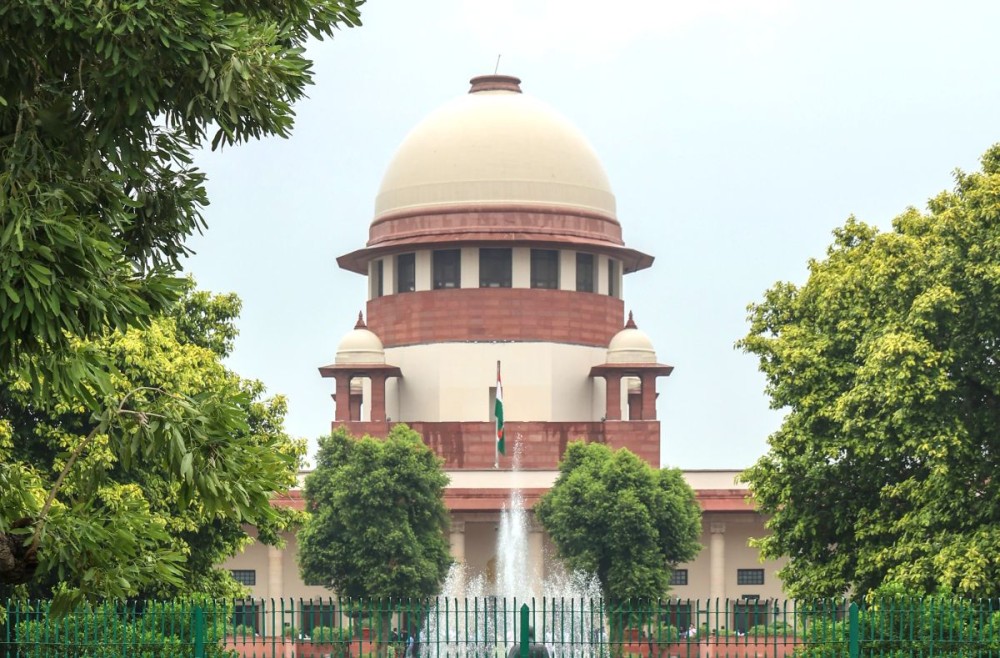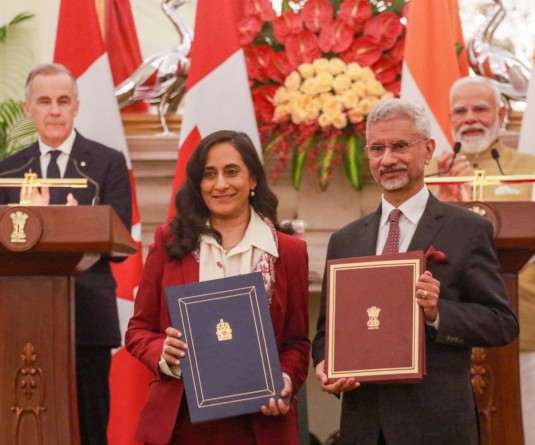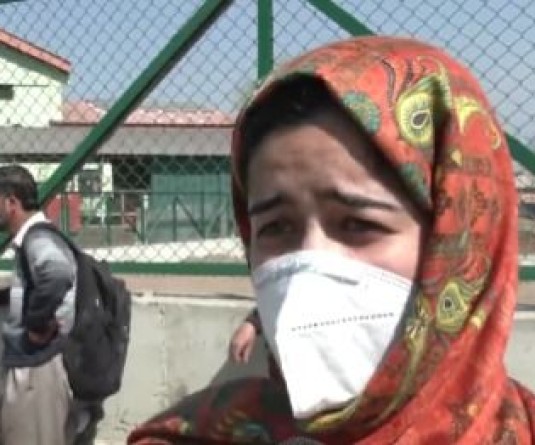
New Delhi, June 2 (agencies): Scams related to Commonwealth Games 2010 might have surfaced late last year, but the then Sports Minister Mani Shankar Aiyar had raised questions over the unusual increase in the budget for the mega event as early as in 2006. In a series of letters to Prime Minister Manmohan Singh since March 2006, Aiyar had expressed his doubts over the functioning of CWG OC and sought removal of its chief Suresh Kalmadi.
An RTI reply received from the Prime Minister’s Office (PMO) to Subhash Chandra Agrawal shows that Aiyar had written a letter dated March 9, 2006 seeking an urgent meeting with Singh to discuss the “gargantuan gap” between the expenditure projections for the games given in 2003 and the revised estimates of 2006. “The gap is not only gargantuan, it also seems to be growing. As against the figure of Rs 150 crore for physical infrastructure projected in 2003, current estimates have been ramped up to over Rs 5,000 crore. On the organisation of the games, the 2003 projection of Rs 250 crore has already been ramped up to nearly Rs 900 core,” Aiyar had pointed out.
In another letter dated October 25, 2007, Aiyar said he was “increasingly alarmed at the profligacy of OC Chairman “after learning that the 2007 Military Games in Hyderabad – in which three quarter of the total athletes and officials expected for CGW had participated – was conducted successfully under a budget of Rs 200 crore. The expenditure projection for CWG at that time had been increased to Rs 20,000 crore. In his March 9, 2006 letter, Aiyar also said that large scale expenditure for a Delhi-centric sports event like CWG “could rest easier on our conscience if there were a corresponding scheme to meet the crying need of sports facilities in the rural areas”. In another letter dated March 8, 2007, Aiyar stated that Kalmadi called him up to ask whether government could sanction an additional Rs 5 crore to pursue New Delhi’s bid for the Asian Games 2014.
According to the letter, Kalmadi, who had already been sanctioned Rs 2 crore and supplemented with a further sum of Rs 3 crore from the Government of Delhi, was seeking Rs 5 crore more – Rs 3 crore from Delhi government and Rs 2 crore form Centre as pre-bidding expenditure. When asked about the rationale for the request, Kalmadi explained that North Korea was trying hard for getting the event, but could not give any details how he would spend the money, Aiyar wrote in his letter to the Prime Minister. The notings on the letter suggest that the Prime Minister has asked his office, the PMO, to ask Aiyar to bring this issue to the Cabinet for discussion. It is, however, not clear from the documents whether the issues were discussed in any Cabinet meeting.
In his October 25, 2007 letter, Aiyar also questioned how CWG Federation official Mike Hopper turned from a trenchant critic of CGW 2010 to an avid enthusiast overnight soon after he was appointed by OC as an international consultant for the games at a cost of Rs 1.5-2 crore. Aiyar also urged for recasting the CWG Organising Committee and its execute board and suggested to replace Kalmadi with a younger MP as the OC chairman. “I would suggest that a Minister of State for International Sporting Events be appointed from amongst our younger MPs to take over as Chairman of a revamped Executive Board of a rejigged Organising Committee and thus ensure that the organisation of the Games is delivered economically, efficiently and with good taste,” he had written. Since Kalmadi believes his proposals to be ‘bankable’, it might be best for him “to raise the required finances in the open market rather than have the Government fund his demands and then be held responsible before Parliament”, Aiyar suggested in his letter to the Prime Minister.
Reflecting the conflict between the sports ministry and the OC, Aiyar wrote: “If I may mix my metaphors, the chairman sees the Ministry as a milch cow to extract as much money as he can and a rubber stamp to endorse every spending decision he takes, however, outrageous.” He also said that though the physical infrastructure would be finished in time and meet international standards, the organisation of the games “in an economic, efficient and tasteful manner cannot be assured” with the present organisational structure
An RTI reply received from the Prime Minister’s Office (PMO) to Subhash Chandra Agrawal shows that Aiyar had written a letter dated March 9, 2006 seeking an urgent meeting with Singh to discuss the “gargantuan gap” between the expenditure projections for the games given in 2003 and the revised estimates of 2006. “The gap is not only gargantuan, it also seems to be growing. As against the figure of Rs 150 crore for physical infrastructure projected in 2003, current estimates have been ramped up to over Rs 5,000 crore. On the organisation of the games, the 2003 projection of Rs 250 crore has already been ramped up to nearly Rs 900 core,” Aiyar had pointed out.
In another letter dated October 25, 2007, Aiyar said he was “increasingly alarmed at the profligacy of OC Chairman “after learning that the 2007 Military Games in Hyderabad – in which three quarter of the total athletes and officials expected for CGW had participated – was conducted successfully under a budget of Rs 200 crore. The expenditure projection for CWG at that time had been increased to Rs 20,000 crore. In his March 9, 2006 letter, Aiyar also said that large scale expenditure for a Delhi-centric sports event like CWG “could rest easier on our conscience if there were a corresponding scheme to meet the crying need of sports facilities in the rural areas”. In another letter dated March 8, 2007, Aiyar stated that Kalmadi called him up to ask whether government could sanction an additional Rs 5 crore to pursue New Delhi’s bid for the Asian Games 2014.
According to the letter, Kalmadi, who had already been sanctioned Rs 2 crore and supplemented with a further sum of Rs 3 crore from the Government of Delhi, was seeking Rs 5 crore more – Rs 3 crore from Delhi government and Rs 2 crore form Centre as pre-bidding expenditure. When asked about the rationale for the request, Kalmadi explained that North Korea was trying hard for getting the event, but could not give any details how he would spend the money, Aiyar wrote in his letter to the Prime Minister. The notings on the letter suggest that the Prime Minister has asked his office, the PMO, to ask Aiyar to bring this issue to the Cabinet for discussion. It is, however, not clear from the documents whether the issues were discussed in any Cabinet meeting.
In his October 25, 2007 letter, Aiyar also questioned how CWG Federation official Mike Hopper turned from a trenchant critic of CGW 2010 to an avid enthusiast overnight soon after he was appointed by OC as an international consultant for the games at a cost of Rs 1.5-2 crore. Aiyar also urged for recasting the CWG Organising Committee and its execute board and suggested to replace Kalmadi with a younger MP as the OC chairman. “I would suggest that a Minister of State for International Sporting Events be appointed from amongst our younger MPs to take over as Chairman of a revamped Executive Board of a rejigged Organising Committee and thus ensure that the organisation of the Games is delivered economically, efficiently and with good taste,” he had written. Since Kalmadi believes his proposals to be ‘bankable’, it might be best for him “to raise the required finances in the open market rather than have the Government fund his demands and then be held responsible before Parliament”, Aiyar suggested in his letter to the Prime Minister.
Reflecting the conflict between the sports ministry and the OC, Aiyar wrote: “If I may mix my metaphors, the chairman sees the Ministry as a milch cow to extract as much money as he can and a rubber stamp to endorse every spending decision he takes, however, outrageous.” He also said that though the physical infrastructure would be finished in time and meet international standards, the organisation of the games “in an economic, efficient and tasteful manner cannot be assured” with the present organisational structure






